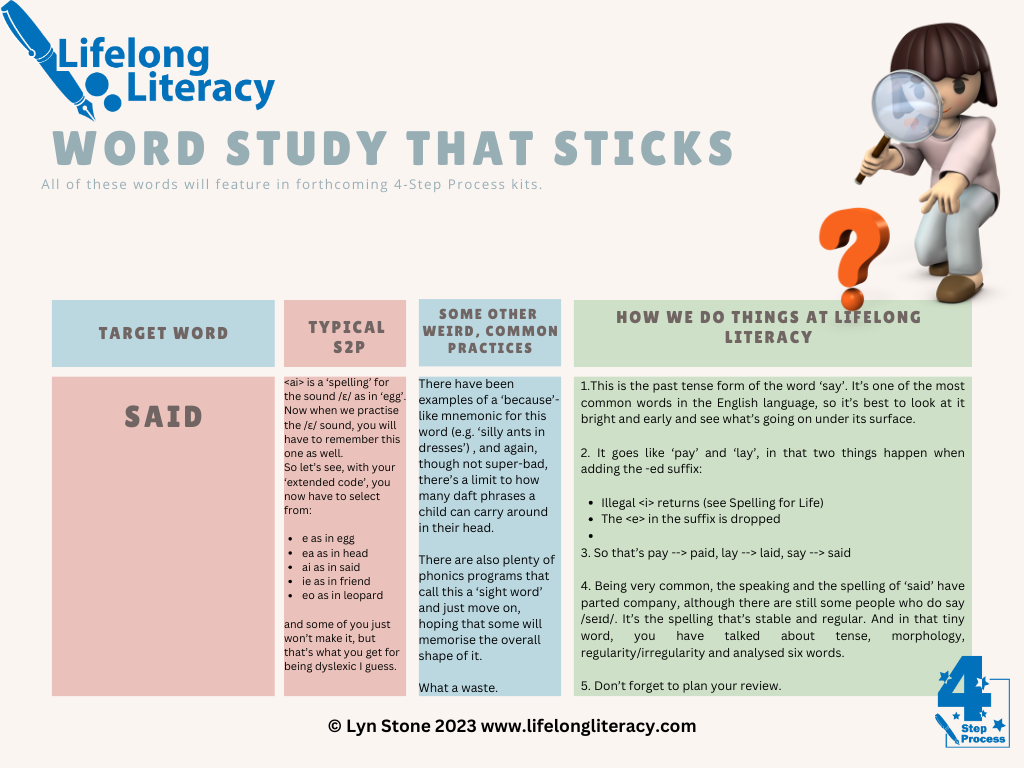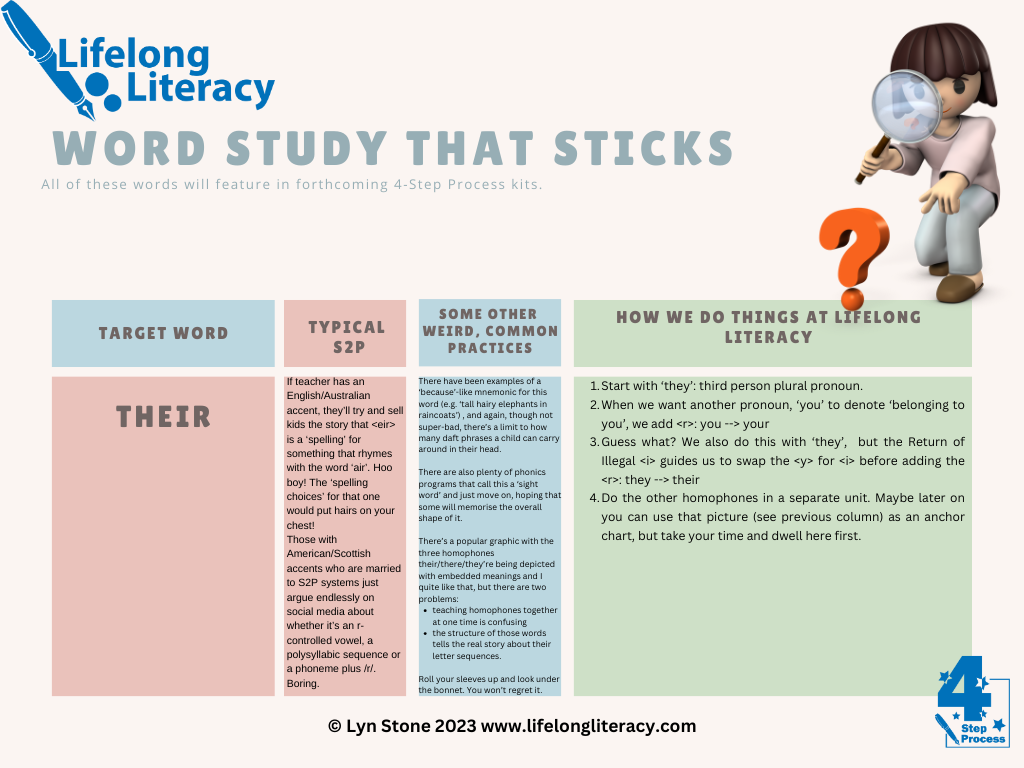Today’s popular words are ‘said’ and ‘their’. Guaranteed to come up whenever you ask a room of teachers about tricky words.
Use the irregular words to tell the stories of the language. They aren’t irregular for a laugh. Each time you encounter one, you stand at a fork in the road. You can either gloss over it with ‘spelling choice’ nonsense or whole word memorisation, as is the wont of countless teachers the world over, or you can take the path less-traveled, and make all the difference.
Over to you, Robert Frost:
The Road not Taken
Two roads diverged in a yellow wood,
And sorry I could not travel both
And be one traveler, long I stood
And looked down one as far as I could
To where it bent in the undergrowth;
Then took the other, as just as fair,
And having perhaps the better claim,
Because it was grassy and wanted wear;
Though as for that the passing there
Had worn them really about the same,
And both that morning equally lay
In leaves no step had trodden black.
Oh, I kept the first for another day!
Yet knowing how way leads on to way,
I doubted if I should ever come back.
I shall be telling this with a sigh
Somewhere ages and ages hence:
Two roads diverged in a wood, and I—
I took the one less traveled by,
And that has made all the difference.


Thank you Lyn for your clearly articulated sensible approach here. As a long term teacher with a passion for our morpho-phonemic language, but not a linguistics background, I often have these conversations with close colleagues, with a view to how we help our students.
The dyslexic and challenged student has no way to make the correct choice when presented with a range of options, which are useful to know about, but provide no guarantees for predicting the spelling of an unknown word. Many kids come to class with some mnemonics, which confuses the less successful even further.
Say and its past tense is used so much, but causes endless confusion and I agree it’s really worth spending time on. The fact that play, stay, fray all become played, stayed etc doesn’t help and …teachers like neat solutions – heck they didn’t invent the problem! Before your book I didn’t know about illegal , but I have often spoken to students about how English loves a y drop! If kids have been taught morphology eg bunnies, buries etc, it is not such a huge stretch to say, said at all. I also talk to students about y drop in other situations – new and old lolly+pop = lollipop, handy+work=handiwork and that this y drop has been going on a very long time… holy+day=holiday.
You/your and they/their is also a great connection and I think a lot of teachers will find this helpful so thank you again.